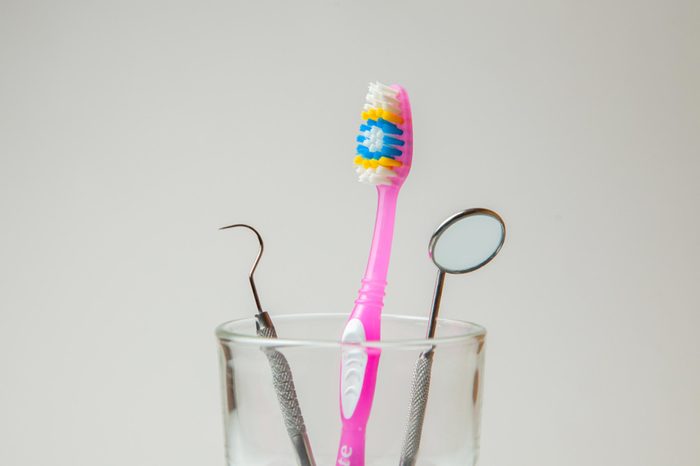
You don’t need to brush right before the dentist
It may seem like a good idea to freshen up your mouth right before your appointment, but some dentists file this under “dentist don’t.” “This is what we do for a living so we understand there are some things that can’t be avoided, bad breath being one of them. Sometimes it’s best not to try to camouflage things going on in your mouth before visiting the dentist,” says Ada Cooper, DDS, a New York City-based dentist and spokesperson for the American Dental Association. The odour of your breath can be an indication of other dental or systemic health problems, so it’s important for your dentist to smell it in its natural state. But, if you have a mouth of leftovers from lunch still hanging on, a quick brush or rinse might be in order.
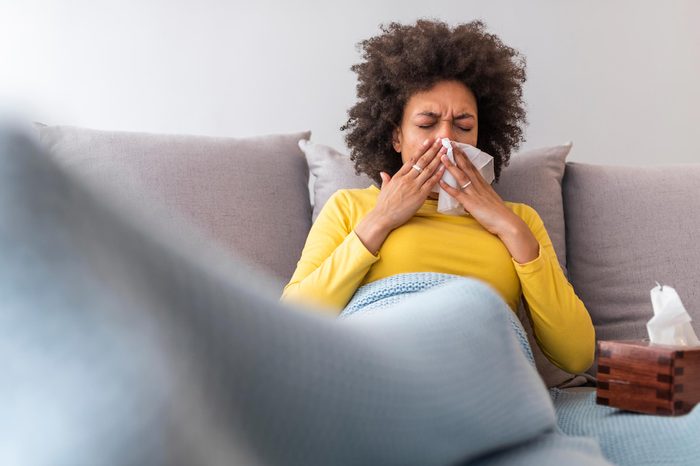
Being sick isn’t a deal-breaker
If you’re coughing and sneezing or laid up with the flu, your best bet is to reschedule; but if you’re only a little under the weather, it’s probably OK for you to keep your appointment. “Dentists have very carefully placed hygiene measures in the office to ensure that disease isn’t transmitted between patient-to-patient or patient-to-doctor,” says Dr. Cooper.

Don’t work out beforehand
Sitting in a sticky chair with damp, sweaty clothes on is probably the last thing you or your dentist wants you to do. If you can, wait until after your appointment to hit the gym.
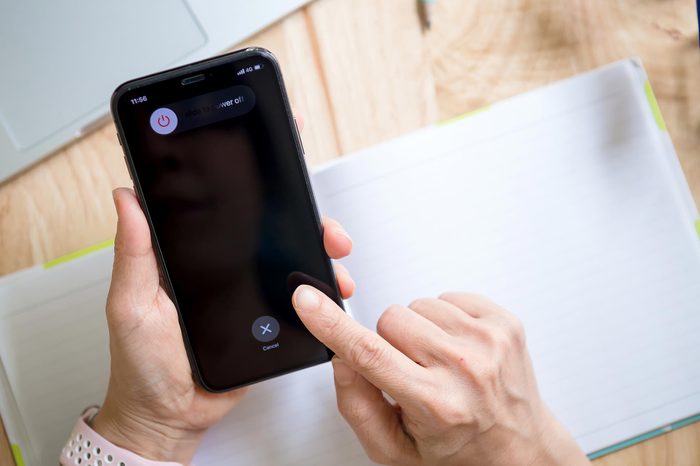
Take a break from your cell phone
Unless you’re waiting on a critical call, take this moment to unplug. “Most people would ask, ‘Who would ever answer their phone while they’re sitting in a dental chair?’ The answer is, ‘More people than you’d expect,’” says Barry Parisien, DD, a denture specialist in Canada.
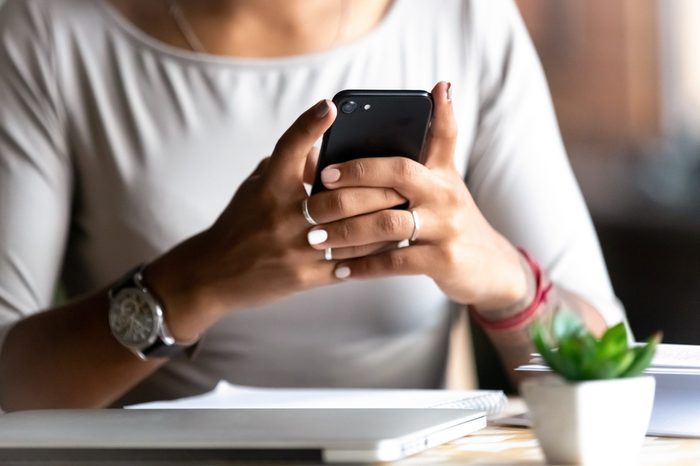
Be respectful when cancelling
Every dental practice has a different protocol when it comes to cancelling or rescheduling appointments. The one thing they can probably all agree on: being a no-show is a big no-no. Not only is it a bit rude to bail without a phone call, but it also means your dentist could have seen another patient during your time slot. (FYI: These are the secrets your dentist won’t tell you.)
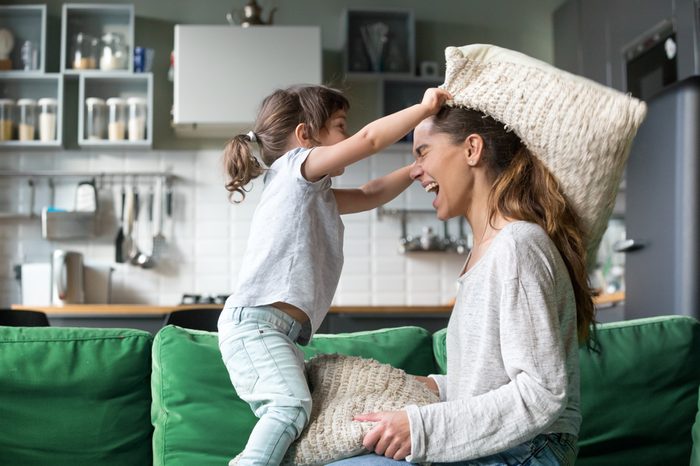
Be mindful of bringing children along
It’s a good idea to check with your dentist’s office before lugging your active three-year-old along. “At my office, I encourage my patients to bring their children if they don’t have a childcare option because we are typically able to have a staff member available who can keep them occupied while you’re in the chair,” says Dr. Cooper. And while you shouldn’t avoid the dentist just because you don’t have a babysitter available, having your kid in the exam room can detract from your experience. “Your time in the chair should be time devoted to you. It’s not a distraction for the dentist so much, but sometimes it’s stressful or distracting for parents,” she says.
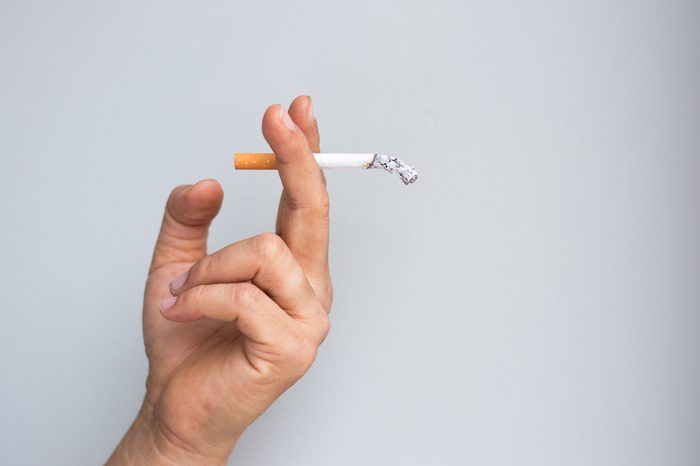
Don’t smoke first
Smoking is something patients shouldn’t do period, but definitely not before the dentist,” says Dr. Cooper. Smoking can lead to teeth staining, gum disease, tooth loss, and even mouth cancer. (Keep in mind, these are the cancer symptoms women are most likely to ignore.)
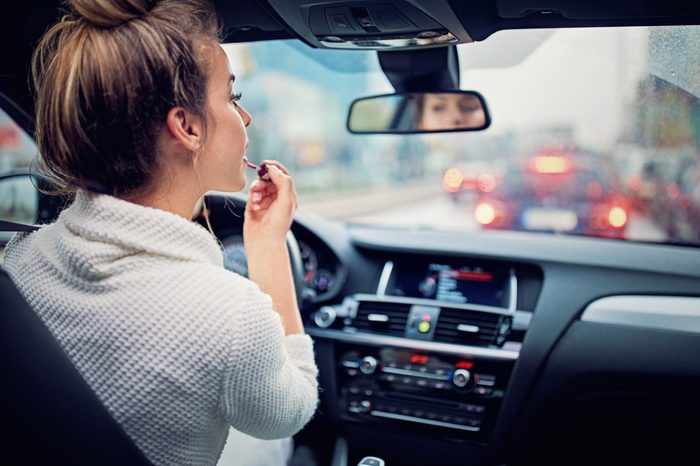
Hold off on lipstick
“Feel free to wear lipstick but don’t be surprised if your dentist asks for it to be removed,” says Dr. Cooper. Lipstick can get on instruments as they pass over your lips to get to your mouth, and if your dentist is performing tooth restoration, unnaturally coloured lips can make it harder to evaluate what tooth shade matches your natural teeth best. (Also, here’s what your dentist wants you to know about teeth whitening.)
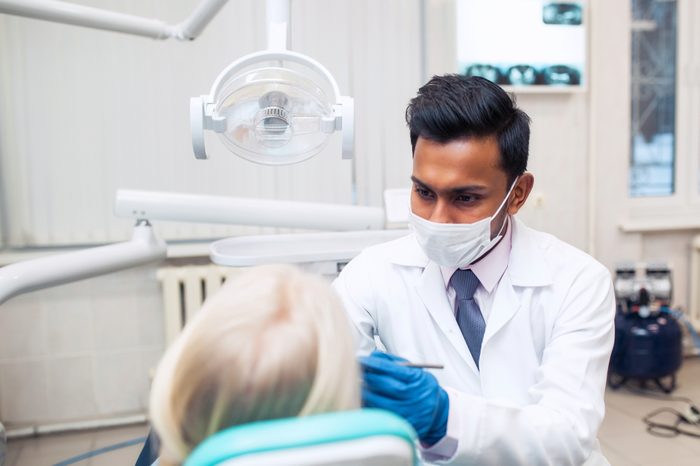
Ask questions
Dentists follow the adage, “no question is a stupid question.” “It’s essential that the patient understand the treatment their doctor is proposing and all options and alternatives. If the doctor says something you don’t understand, don’t be shy about asking questions,” says Dr. Cooper. “If you don’t feel comfortable asking your dentist a question, that might be an opportunity to look for a second opinion.”
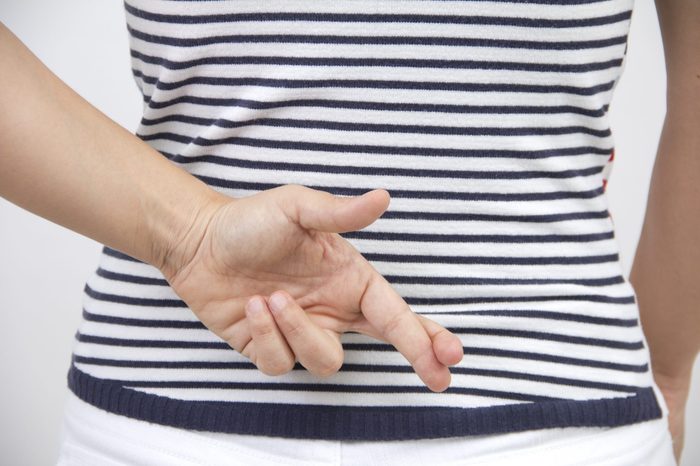
Don’t lie about your home dental habits
Honesty is key when you’re dealing with any type of doctor. Lying about your medical history or habits can prevent you from getting the treatment you need. “Patients often try to convince me they floss every day and brush twice a day and sometimes it’s pretty evident they don’t,” says Dr. Cooper. “Lying to a dentist will result in damage to yourself because honesty is the only way we can really give our best shot at the best treatment.”
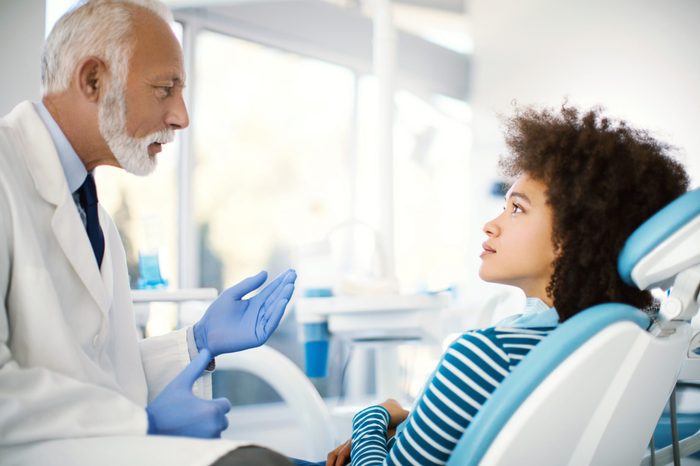
Voice concerns
If you have a bad experience with your dental hygienist or the dentist, don’t be afraid to speak up. “Whatever feedback patients have concerning their appointment—positive or negative—dentists want to know,” says Dr. Cooper.
Medically reviewed by Susanne Jackson, DDS.
Now that you know whether or not you have good dental etiquette, check out these dentist-approved home remedies for sensitive teeth.
